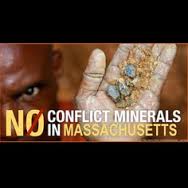posted by Nicole Santiago, Northeastern University School of Law
 During my co-op at the International Corporate Accountability Roundtable (ICAR), one of my focus areas has been corporate transparency. ICAR believes – and I strongly agree – that companies have a responsibility to report on their human rights impacts. This means that businesses must know how their daily operations impact human rights, and must then publicly disclose those impacts to the public. This applies not only to business activities at home, but also to the activities of subsidiaries and supply chains, even if they are outside the country. We see human rights disclosure as important for investors (in corporations speak, it is “material” to investment decisions), and necessary for businesses to respect human rights, which is a responsibility that they have under the United Nations Guiding Principles on Business and Human Rights.
During my co-op at the International Corporate Accountability Roundtable (ICAR), one of my focus areas has been corporate transparency. ICAR believes – and I strongly agree – that companies have a responsibility to report on their human rights impacts. This means that businesses must know how their daily operations impact human rights, and must then publicly disclose those impacts to the public. This applies not only to business activities at home, but also to the activities of subsidiaries and supply chains, even if they are outside the country. We see human rights disclosure as important for investors (in corporations speak, it is “material” to investment decisions), and necessary for businesses to respect human rights, which is a responsibility that they have under the United Nations Guiding Principles on Business and Human Rights.
Companies have been reluctant to share information about their human rights impacts. Some corporations do not have the internal resources and know-how to conduct detailed human rights investigations. Others do not want to spend the extra money. And some do not want to know – or they do not want the public to know – that they are involved in human rights abuses. Unsurprisingly, businesses are fighting against mandatory human rights reporting.
However, after last month it is clear that they are fighting a losing battle. Governments around the world are moving ahead towards broader mandatory reporting, and even the most influential businesses cannot stop it.
The first victory came on April 14th, when a divided panel of the DC District Court of Appeals upheld the majority of a US Securities and Exchange Commission’s (SEC) rule for conflict minerals disclosure. The SEC rule requires companies to determine whether they source select minerals from the Democratic Republic of Congo (DRC) and to publicly report on whether those minerals are “conflict free.”
 The rule was developed by the SEC in response to a Congressional call for action. For over 15 years, communities in the DRC and the surrounding region have been victims of brutal violence in a conflict that is substantially fueled by the trade in certain minerals: tin, tantalite, tungsten, and gold. Labelled “conflict minerals” because of their dubious association with murder, mass rape, and environmental desecration, these are minerals that are found in many of the electronics we carry and the jewelry we wear every day. In the 2010 Dodd-Frank Act, Congress addressed the role of US companies in the humanitarian crisis, and ordered the SEC to come up with a rule requiring companies to publicly show whether they are contributing to the violence. The rule–referred to as Section 1502, in reference to the corresponding section in the 2010 Dodd-Frank Act–requires businesses to find out where their minerals are sourced from, and determine whether the trade of those minerals directly or indirectly benefits an armed group.
The rule was developed by the SEC in response to a Congressional call for action. For over 15 years, communities in the DRC and the surrounding region have been victims of brutal violence in a conflict that is substantially fueled by the trade in certain minerals: tin, tantalite, tungsten, and gold. Labelled “conflict minerals” because of their dubious association with murder, mass rape, and environmental desecration, these are minerals that are found in many of the electronics we carry and the jewelry we wear every day. In the 2010 Dodd-Frank Act, Congress addressed the role of US companies in the humanitarian crisis, and ordered the SEC to come up with a rule requiring companies to publicly show whether they are contributing to the violence. The rule–referred to as Section 1502, in reference to the corresponding section in the 2010 Dodd-Frank Act–requires businesses to find out where their minerals are sourced from, and determine whether the trade of those minerals directly or indirectly benefits an armed group.
Business and industry groups, led by the National Association of Manufacturers, were quick to challenge the rule on several grounds. Yet, as the opinion last month illustrated, their efforts were almost entirely wasted. The Court threw out their first two challenges, one based on the Administrative Procedural Act’s “arbitrary and capricious” standard, and other based on the 1934 Securities Exchange Act, which established the SEC and its mandate.
 On the whole, the Court agreed with the SEC rule-making decisions. It made clear that companies cannot ignore warning signs from preliminary inquiries and they cannot contract-away responsibility. The SEC has the authority to make rules even when the benefits are experienced “half-a-world” away, and those benefits cannot be directly compared to the financial costs–the Court likened it to comparing apples to bricks. The Court also explicitly stated that the SEC need not have “particular expertise” to make a rule, so long as Congress stipulates that a rule would effectuate an end goal. All in all, this is very powerful language for human rights advocates.
On the whole, the Court agreed with the SEC rule-making decisions. It made clear that companies cannot ignore warning signs from preliminary inquiries and they cannot contract-away responsibility. The SEC has the authority to make rules even when the benefits are experienced “half-a-world” away, and those benefits cannot be directly compared to the financial costs–the Court likened it to comparing apples to bricks. The Court also explicitly stated that the SEC need not have “particular expertise” to make a rule, so long as Congress stipulates that a rule would effectuate an end goal. All in all, this is very powerful language for human rights advocates.
The only thing that the Association can claim victory on is a First Amendment challenge against the labeling provision, which would have required businesses to state on their websites whether the minerals they source are “DRC Conflict Free” or not. It’s hard to believe that the costs–financial, reputational and otherwise–of fighting over those three little words was really worth it. This is especially true when you consider that a different case, in which another DC District Court panel has already rejected a similar First Amendment argument in relation to meat labeling, may make the majority’s analysis of the appropriate standards of review irrelevant.
Moving forward, companies are still required to file their first reports in less than a month, and at least one company has already done so. On May 1st, the SEC issued guidance for the roughly 6,000 companies affected by the rule, clarifying that the reporting requirements in the rule are still good law.
We still have a ways to go, and the future is not crystal clear. But for reluctant companies, one thing is evident: Mandatory disclosure is going to happen. Twenty years from now, these companies may find themselves in the same position as toxic polluters in the 20th century now find themselves: retroactively liable for failure to take action on an important issue. There is no time to waste.